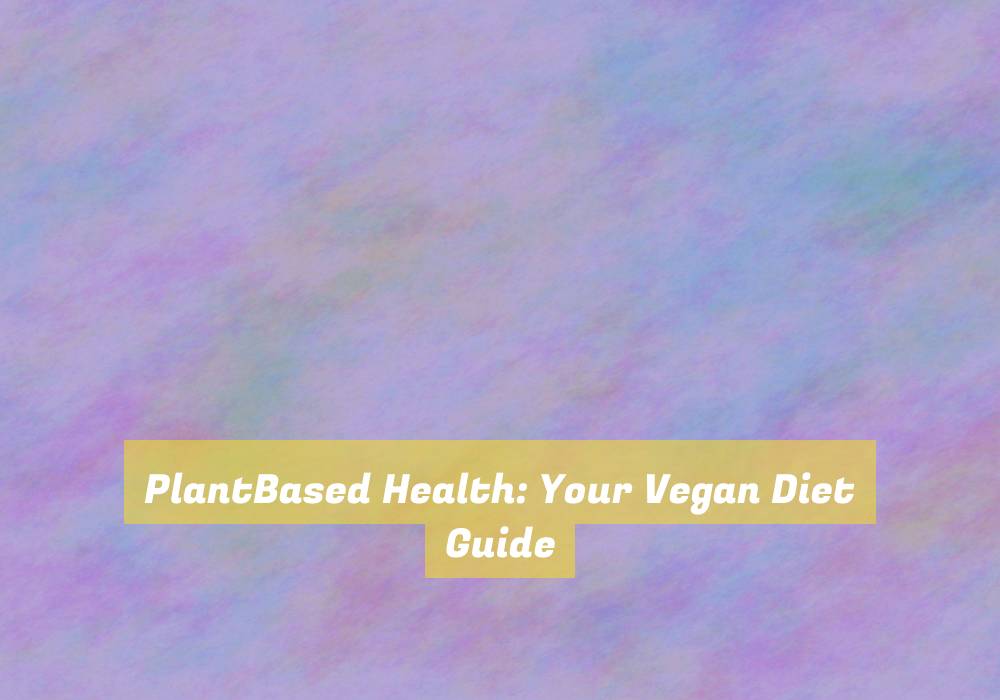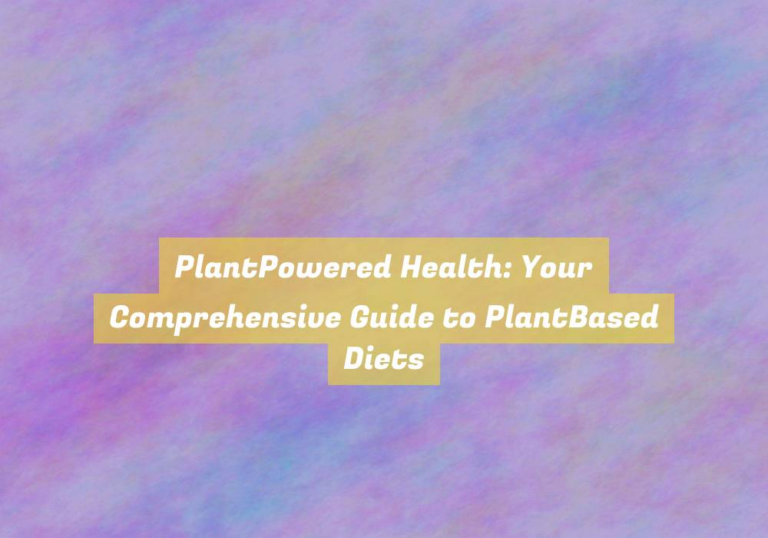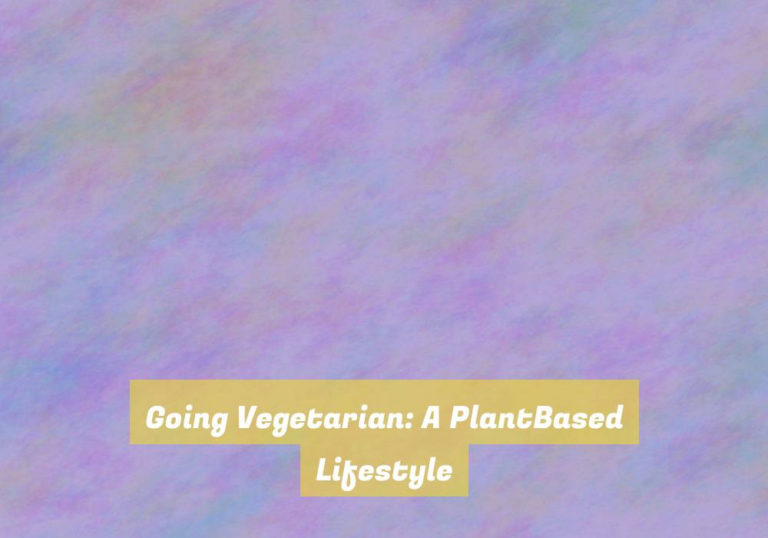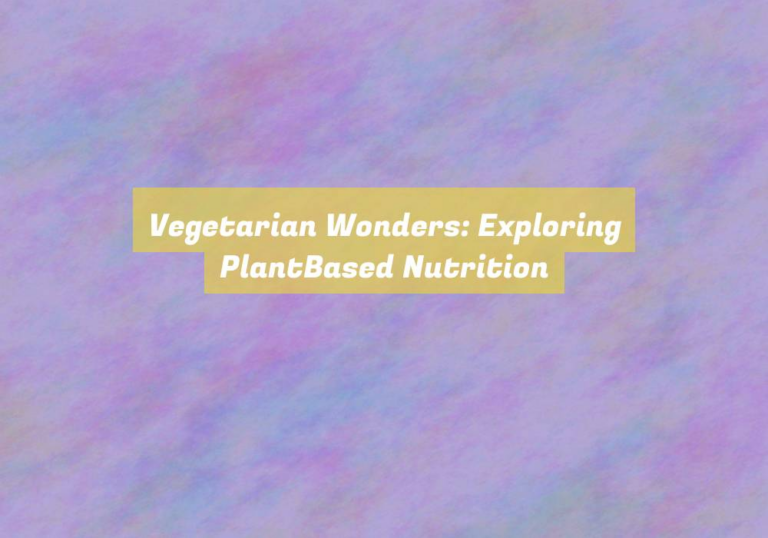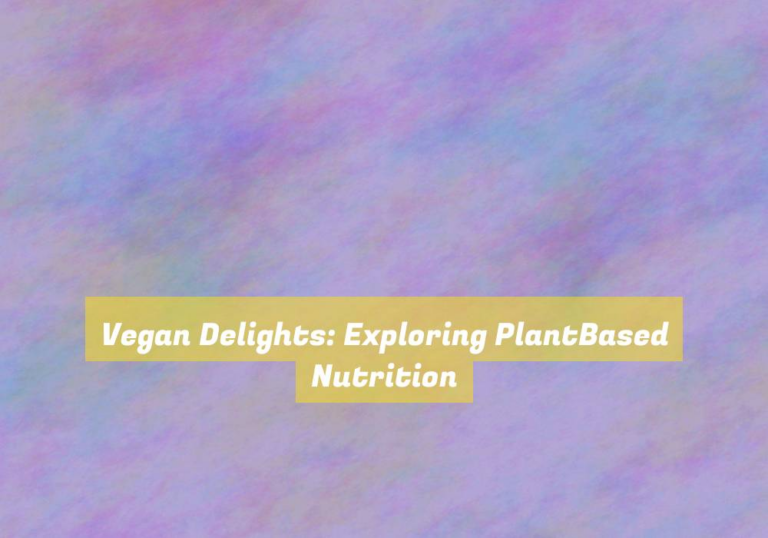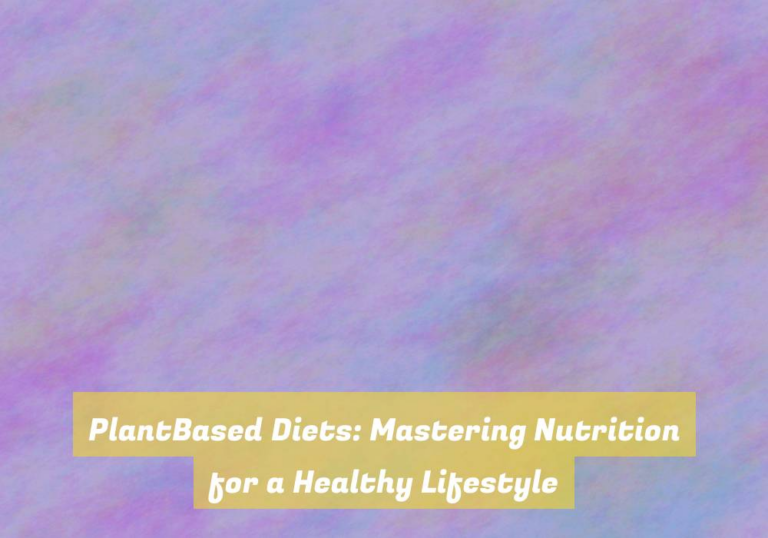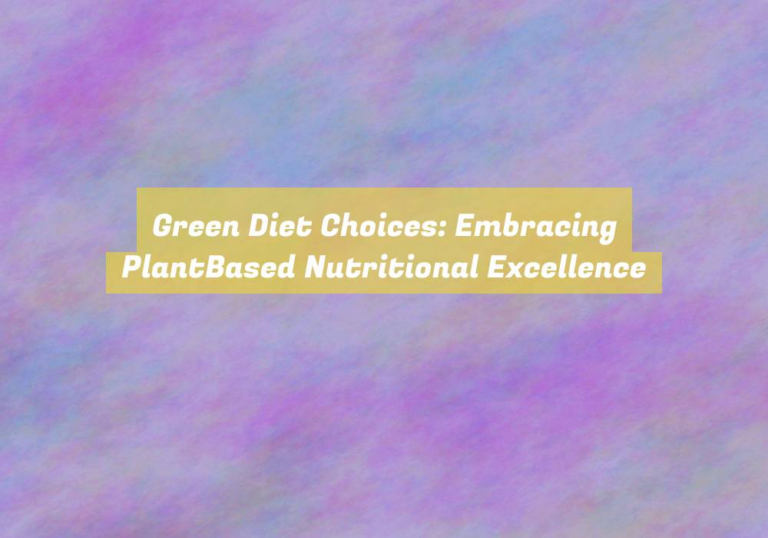PlantBased Health: Your Vegan Diet Guide
So, youG??ve probably heard all the jokes about vegans and their kale smoothies, but have you ever considered the potential health benefits of a plant-based diet? Whether youG??re looking to improve your overall health, reduce your environmental impact, or simply try something new, diving into the world of veganism can be both exciting and daunting.
As you navigate through the maze of information and misinformation surrounding vegan nutrition, you might find yourself wondering how to ensure youG??re getting all the essential nutrients without feeling like youG??re missing out on the joy of food. Well, fear not, because in this guide, weG??ll uncover the key aspects of plant-based health and provide you with practical tips and resources to support your journey towards a balanced and fulfilling vegan lifestyle.
Benefits of a Vegan Diet
One of the key benefits of adopting a vegan diet is the potential for improved heart health and reduced risk of chronic diseases. By eliminating animal products and focusing on whole plant-based foods, you can lower your risk of high blood pressure, heart disease, and stroke. Plant-based diets are naturally low in saturated fat and cholesterol, which are known contributors to heart-related ailments. Additionally, the high fiber content in fruits, vegetables, and whole grains can help manage cholesterol levels and promote a healthy cardiovascular system.
Furthermore, a vegan diet has been linked to a decreased risk of developing type 2 diabetes. The emphasis on whole grains, legumes, and nuts can improve insulin sensitivity and regulate blood sugar levels. This can be particularly beneficial for individuals with a family history of diabetes or those looking to manage their weight effectively.
Incorporating more plant-based foods into your diet can also lead to better weight management, which is crucial for overall health and well-being. By choosing nutrient-dense, low-calorie foods, you can support a healthy weight and reduce the risk of obesity-related conditions such as heart disease, diabetes, and certain cancers. Making these dietary changes can have a significant impact on your long-term health and help you feel your best.
Essential Nutrients for Vegans
To maintain a balanced vegan diet, itG??s essential to ensure youG??re obtaining vital nutrients from plant-based sources. One crucial nutrient for vegans is vitamin B12, which is primarily found in animal products. To meet your B12 needs, consider fortified foods like plant-based milks, cereals, or nutritional yeast, or take a B12 supplement.
Iron is another essential nutrient for vegans, and while it can be obtained from plant foods like lentils, tofu, and spinach, consuming vitamin C-rich foods alongside iron sources can enhance absorption.
Additionally, omega-3 fatty acids are important for heart and brain health. Incorporate flaxseeds, chia seeds, hemp seeds, walnuts, or algae-based supplements into your diet to meet your omega-3 needs.
Protein is readily available from plant-based sources such as beans, lentils, quinoa, and tofu.
Finally, calcium can be obtained from fortified plant milks, calcium-set tofu, and leafy greens like kale and bok choy.
Meal Planning and Recipes
Considering the essential nutrients for vegans, meal planning and recipes play a vital role in ensuring a well-rounded and satisfying plant-based diet. When planning your meals, focus on incorporating a variety of fruits, vegetables, whole grains, legumes, nuts, and seeds to ensure youG??re getting all the necessary nutrients. Aim to include sources of protein such as tofu, tempeh, lentils, and chickpeas in your meals to support muscle health and overall well-being. Experiment with different cooking methods and flavor combinations to keep your meals interesting and enjoyable.
Meal prepping can also be a game-changer in maintaining a vegan diet. It not only saves time but also ensures that you have healthy options readily available, making it easier to stick to your dietary goals. Look for simple and nutritious vegan recipes that you can prepare in batches and store for the week ahead. This will help you avoid the temptation of opting for less healthy convenience foods.
With proper meal planning and delicious vegan recipes at your disposal, you can easily meet your nutritional needs while enjoying a diverse and flavorful plant-based diet.
Overcoming Vegan Lifestyle Challenges
Navigating the vegan lifestyle presents unique challenges that can be overcome with practical strategies and a positive mindset.
One common challenge is finding suitable vegan options when dining out. To overcome this, research restaurants in advance and suggest vegan-friendly places to meet friends. When traveling, pack vegan snacks and research local vegan eateries.
Another challenge is dealing with unsupportive friends or family members. Communicate openly with them about your choice, share delicious vegan meals, and educate them about the benefits of a plant-based diet.
Additionally, managing social situations where non-vegan food is prevalent can be tough. Offer to bring a vegan dish to gatherings, volunteer to host potlucks, and politely decline non-vegan offerings.
Lastly, maintaining balanced nutrition can be a concern. Ensure you consume a variety of fruits, vegetables, whole grains, and plant-based proteins. Consider consulting a dietitian to create a well-rounded meal plan.
Conclusion
In conclusion, a plant-based diet offers numerous health benefits and can provide all the essential nutrients your body needs.
With proper meal planning and delicious vegan recipes, you can easily overcome any challenges that come with a vegan lifestyle.
So, whether youG??re looking to improve your health, support animal rights, or reduce your environmental impact, a vegan diet is a great option for a healthier and more sustainable lifestyle.

